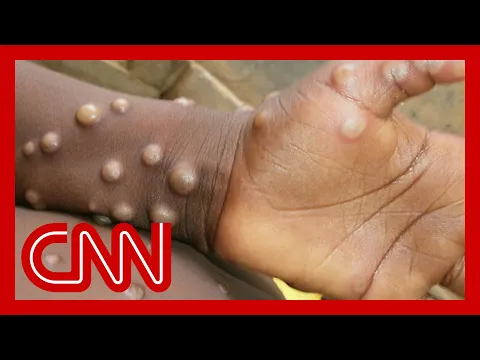Monkeypox is a rare, but highly infectious disease. It’s caused by a virus and typically affects animals, including monkeys. However, it can also be spread to humans.
In this blog post, we’ll explore how monkeypox spreads and the steps you can take to protect yourself from it. We’ll also discuss the symptoms of monkeypox and what you should do if you think you might have it.
What is Monkey Pox?
Monkeypox is a rare viral infection that’s similar to smallpox. It was first discovered in monkeys in the 1950s, but it can also infect humans.
The monkeypox virus is found in Africa and Asia and is spread through contact with infected animals, including monkeys, rats, and squirrels. It can also be spread from person to person.
Monkeypox is rare in the United States, with only a handful of cases reported since monkeypox was first discovered. However, there was a large outbreak in the Democratic Republic of Congo (DRC) in 1996-97, with more than 250,000 cases reported.
- How Much Does a Single Viagra Pill Cost?
- What Does Slip Slop Slap Mean?
- Should You Eat Uncovered Food from the Fridge?
How does Monkey Pox spread?
Monkeypox can be spread through contact with infected animals, including monkeys, rats, and squirrels. It can also be spread from person to person.
The virus is found in the animal’s blood, urine, and other bodily fluids. It can also be spread through direct contact with the animal’s skin or hair.
Monkeypox can also be spread through contaminated objects, such as bedding or clothing.
Infected humans can spread monkeypox to others through close contacts, such as sharing a bed or touching someone’s skin. The virus can also be spread through coughing and sneezing.
What are the symptoms of Monkey Pox?
Monkeypox typically begins with flu-like symptoms, such as fever, headache, and muscle aches. These are followed by a rash that starts on the face and spreads to the rest of the body.
The rash usually starts as small red bumps and progresses to large blisters. Monkeypox can also cause eye infections, pneumonia, and death.
What is the incubation period for Monkey Pox?
The incubation period, or the time from exposure to symptoms, is usually 7-14 days but can range from 5-21 days.
What is the treatment for Monkey Pox?
There is no specific treatment for monkeypox. Treatment focuses on relieving symptoms and supporting the respiratory and immune systems.
Patients with monkeypox should be isolated to prevent the spread of the disease.
- What Blood Pressure Is Too Low? Everything You Need To Know
- Is Proactiv Still Good If Expired? (Explained)
- Can You Take a Bath After a D&C?
What are the risks associated with Monkey Pox?
Monkeypox is a serious disease that can be fatal. The death rate is usually between 1-10% but can be as high as 20% in some outbreaks.
There is no specific treatment for monkeypox, so it’s important to take steps to prevent the disease.
Is there a vaccine for Monkey Pox?
Yes, there is a vaccine for monkeypox. The vaccine is made from a live, attenuated virus and is given in two doses, 4 weeks apart.
The vaccine is 85-100% effective in preventing monkeypox.
- Where Is Ecoden Dreams Located?
- Can you use hydrogen peroxide to clean a bong?
- How Long to Keep Cetaphil on My Face?
What can be done to prevent the spread of Monkey Pox?
There is no specific treatment for monkeypox, so it’s important to take steps to prevent the disease. These include:
- Avoid contact with animals that may be infected with the virus, such as monkeys, rats, and squirrels.
- Washing hands thoroughly with soap and water after coming into contact with an animal or its bodily fluids.
- Avoiding close contact with people who are infected with monkeypox.
- Covering coughs and sneezes with a tissue or sleeve.
- Washing hands frequently with soap and water.
- Disinfecting contaminated surfaces.
If you think you’ve been exposed to the monkeypox virus, it’s important to contact your healthcare provider or local health department immediately. Early diagnosis and treatment can help to prevent serious complications.
Last Thoughts
Monkeypox is a rare but serious disease that can be spread through contact with infected animals or humans. There is no specific treatment for monkeypox, so it’s important to take steps to prevent the disease.
These include washing hands thoroughly, avoiding close contact with people who are infected and covering coughs and sneezes. If you think you may have been exposed to monkeypox, it’s important to seek medical attention immediately. Early diagnosis and treatment can help to prevent serious complications.
- Does Coffee Cause Acne? (Detailed Guide)
- How Many Brigades Are There in the 82nd Airborne Division?
- does pickleball have a no man’s land?
- Do Solenoid Valves Get Hot?
- How Many Calories in Jim Beam Peach?
- How To Turn Off Backup Beeper On Ford F250?
- How to Remove Ford F150 Bed Cover? A Step-by-Step Guide
- Are Canned Yams Already Cooked?
- Is Magdala in Bethany?
- How Much Is Countertop Installation at Home Depot?
- What Does Cordate Leaf Mean?
- How To Reset Anti Theft System On Ford F150?
- Are Bananas Good for You?
- Is Aldor or Scryers for Mage?
